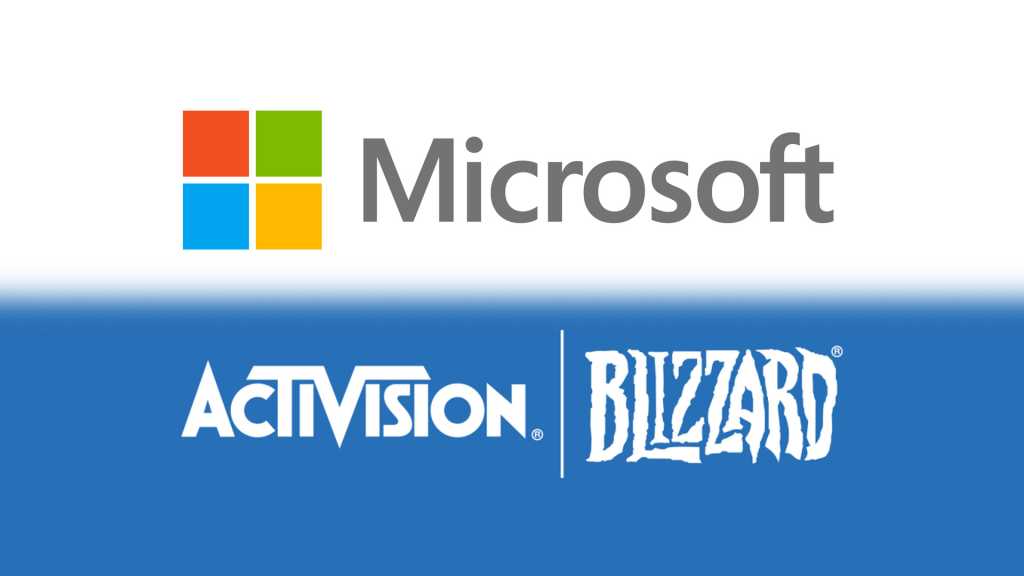Microsoft-Activision Deal: FTC's Appeal And Its Potential Impact

Table of Contents
Microsoft's ambitious $68.7 billion acquisition of Activision Blizzard, announced in January 2022, aimed to bolster its Xbox gaming ecosystem. The deal, however, faced immediate scrutiny from regulators worldwide. The FTC, concerned about potential anti-competitive practices, initially blocked the merger. This article will delve into the FTC's appeal, analyzing its arguments, Microsoft's counterarguments, the potential outcomes, and the broader impact on the gaming industry.
The FTC's Arguments Against the Merger
The FTC's core argument hinges on antitrust concerns. They believe the merger would create a monopoly, stifling competition in the already concentrated gaming market. The focus is heavily on the immense popularity of Activision Blizzard's franchises, particularly "Call of Duty," and the potential for Microsoft to leverage this dominance to harm competitors like Sony's PlayStation.
- Reduced competition in the console market: The FTC argues that Microsoft's acquisition of Activision Blizzard would significantly reduce competition in the console market, giving Microsoft an unfair advantage over competitors like Sony and Nintendo.
- Potential for anti-competitive practices concerning game exclusivity: A key concern is the possibility of Microsoft making key Activision Blizzard titles, like "Call of Duty," exclusive to the Xbox ecosystem, thereby harming PlayStation users and potentially driving them to switch platforms.
- Harm to consumers through higher prices or reduced choice: The FTC suggests that less competition could lead to higher prices for games and reduced choice for consumers. This includes potential limitations on game availability across different platforms.
- Focus on the impact on specific game franchises: The FTC's argument centers around the impact the merger would have on specific, highly popular franchises like "Call of Duty," "World of Warcraft," and "Candy Crush," arguing that their exclusive control could significantly damage competition.
Microsoft's Defense of the Merger
Microsoft vehemently denies the FTC's accusations. They argue that the merger will actually increase competition and innovation within the gaming industry. Their defense rests on several key pillars.
- Claims of increased competition and innovation: Microsoft argues that the acquisition will foster innovation by bringing together talented developers and resources, ultimately leading to better games and a more vibrant gaming ecosystem.
- Promises to maintain "Call of Duty" availability across platforms: A central part of Microsoft's strategy involves maintaining the availability of "Call of Duty" and other key franchises across multiple platforms, including PlayStation, to address the FTC's concerns about exclusivity.
- Emphasis on benefits for game developers and consumers: Microsoft highlights the potential benefits for game developers, offering them greater resources and opportunities, and emphasizes increased consumer choice through broader access to games.
- Arguments against the FTC's assessment of market dominance: Microsoft counters the FTC's assertion of market dominance, arguing that the gaming market is dynamic and competitive, with numerous players and platforms vying for consumer attention.
Potential Outcomes of the FTC's Appeal
The outcome of the FTC's appeal remains uncertain. Several scenarios are possible:
- The FTC wins, blocking the merger completely: This would represent a significant victory for antitrust regulators and a major setback for Microsoft.
- Microsoft wins, allowing the merger to proceed: A win for Microsoft would allow the acquisition to move forward, potentially reshaping the gaming industry landscape.
- A negotiated settlement involving concessions from Microsoft: Microsoft may be willing to offer concessions, such as longer-term commitments to cross-platform availability of key titles, to secure regulatory approval.
- The case goes to a higher court for further appeal: If either party is dissatisfied with the initial court ruling, the case could be escalated to a higher court, prolonging the legal battle.
The Broader Impact on the Gaming Industry
The FTC's appeal and its ultimate resolution will have significant consequences for the gaming industry. The case sets a precedent that will affect future mergers and acquisitions in the sector.
- Setting a precedent for future mergers and acquisitions: The outcome will shape the regulatory environment for future mergers and acquisitions in the gaming industry and beyond.
- Impact on game development and distribution models: The decision could influence how games are developed and distributed, potentially altering the existing business models.
- Changes in the competitive landscape of the gaming market: The merger's success or failure will dramatically reshape the competitive dynamics within the gaming market.
- Potential effects on innovation and consumer choice: The long-term effects on innovation and consumer choice are uncertain, depending heavily on the final outcome of the legal battle.
Conclusion: The Future of the Microsoft-Activision Deal and its Implications
The FTC's appeal against the Microsoft-Activision deal represents a pivotal moment for the gaming industry. The arguments presented by both sides highlight the complexities of balancing innovation with the need to prevent anti-competitive practices. The potential outcomes are significant, with each scenario carrying profound implications for Microsoft, Activision Blizzard, and the gaming landscape as a whole. The high stakes involved underscore the importance of closely following this case and its far-reaching consequences for antitrust law and the future of gaming. Stay informed about further developments in the Microsoft-Activision merger by following reputable news sources and legal updates. The future of gaming may well depend on the final verdict.

Featured Posts
-
 Estevans 2024 Road Sweeping Schedule Dates And Details
May 31, 2025
Estevans 2024 Road Sweeping Schedule Dates And Details
May 31, 2025 -
 The Searchers Farewell Concert Glastonbury 2024
May 31, 2025
The Searchers Farewell Concert Glastonbury 2024
May 31, 2025 -
 Assessing The Risk Alberta Wildfires And Their Impact On Oil Output
May 31, 2025
Assessing The Risk Alberta Wildfires And Their Impact On Oil Output
May 31, 2025 -
 Today In History March 26th And The Details Of Princes Passing
May 31, 2025
Today In History March 26th And The Details Of Princes Passing
May 31, 2025 -
 Spring Skywarn Class Hosted By Meteorologist Tom Atkins
May 31, 2025
Spring Skywarn Class Hosted By Meteorologist Tom Atkins
May 31, 2025
